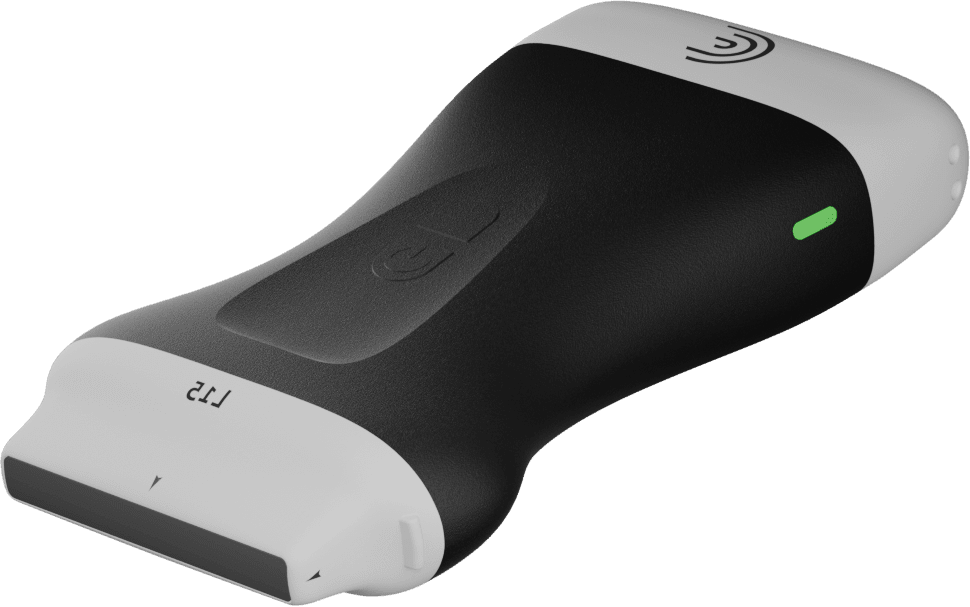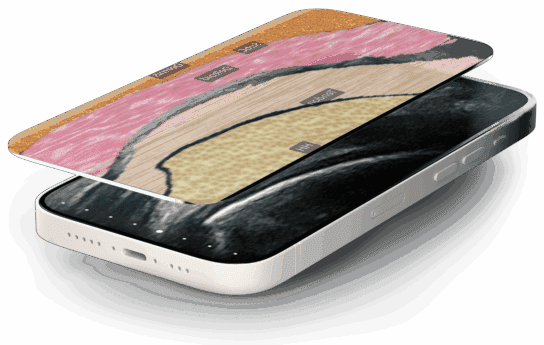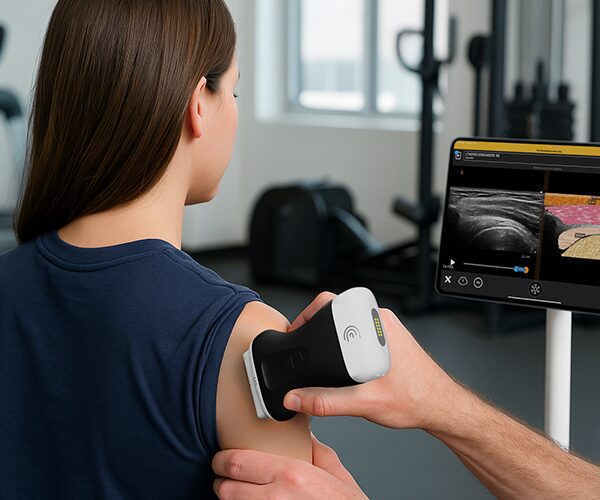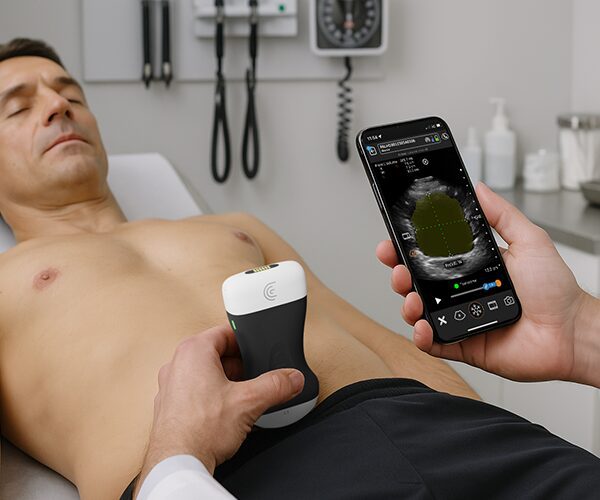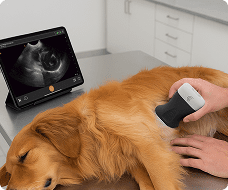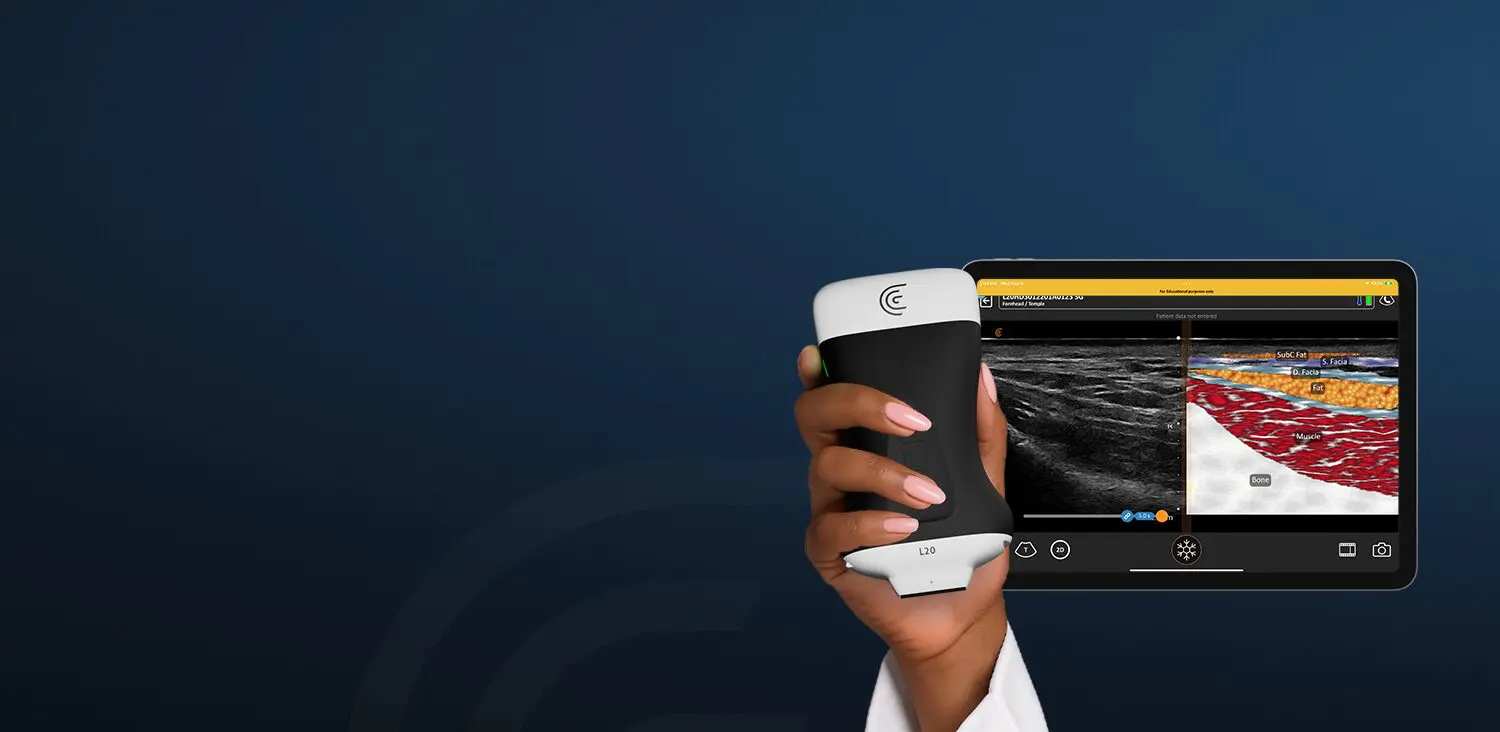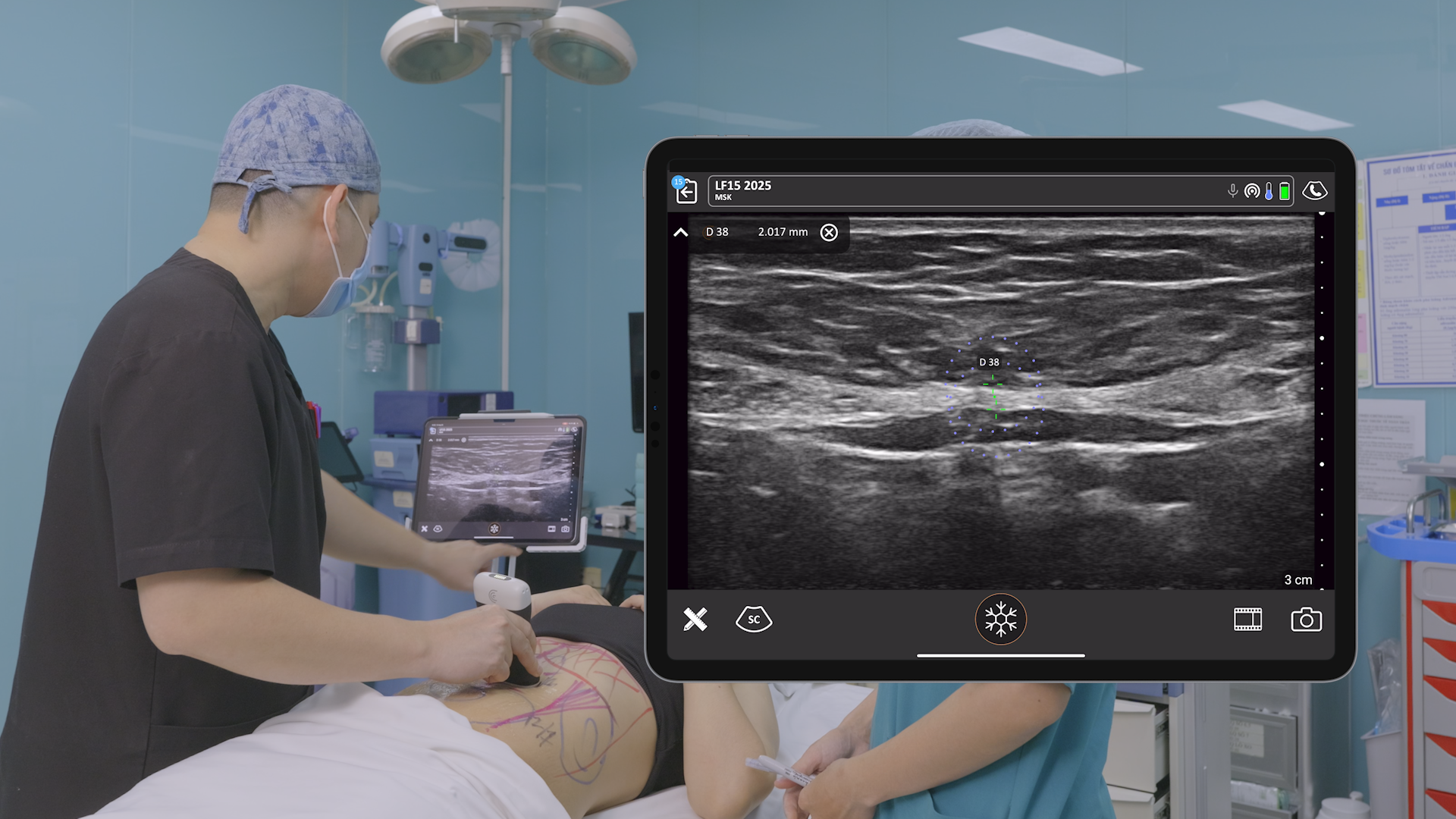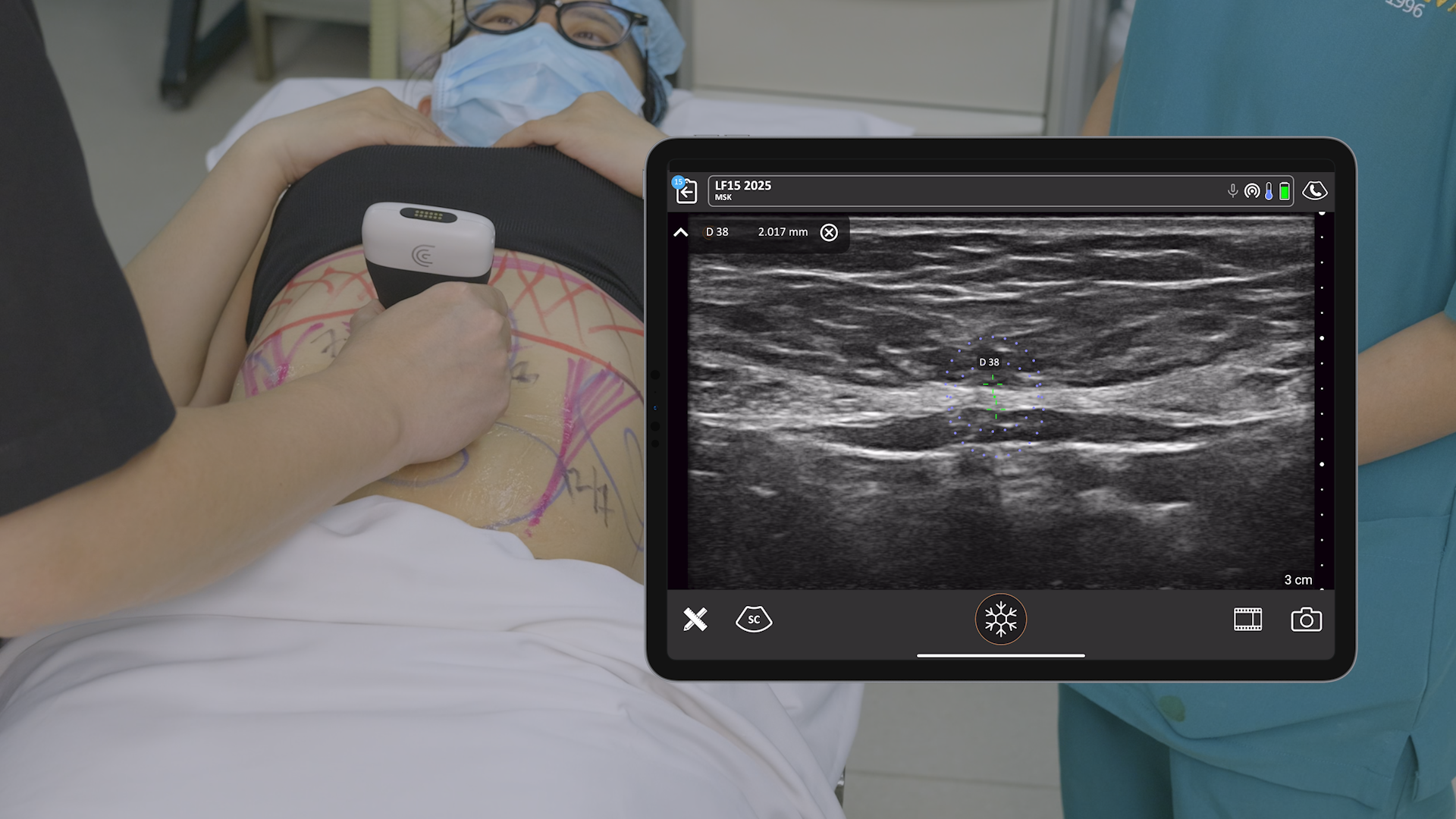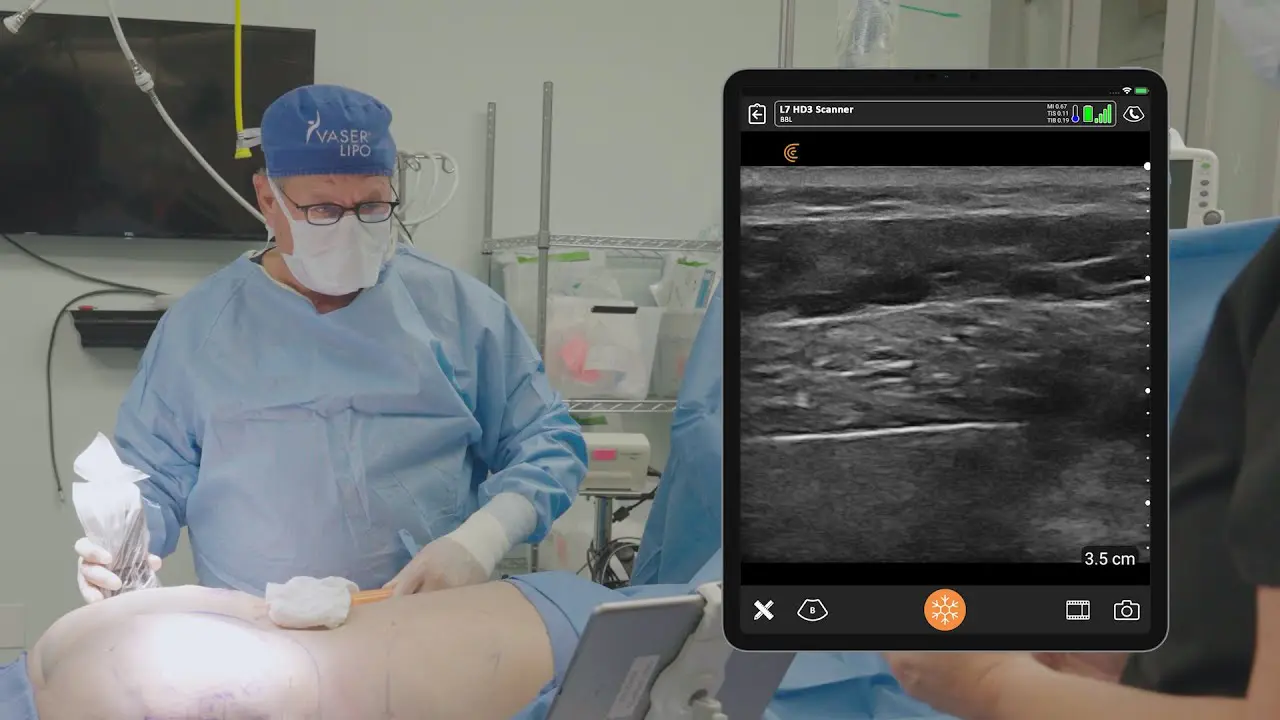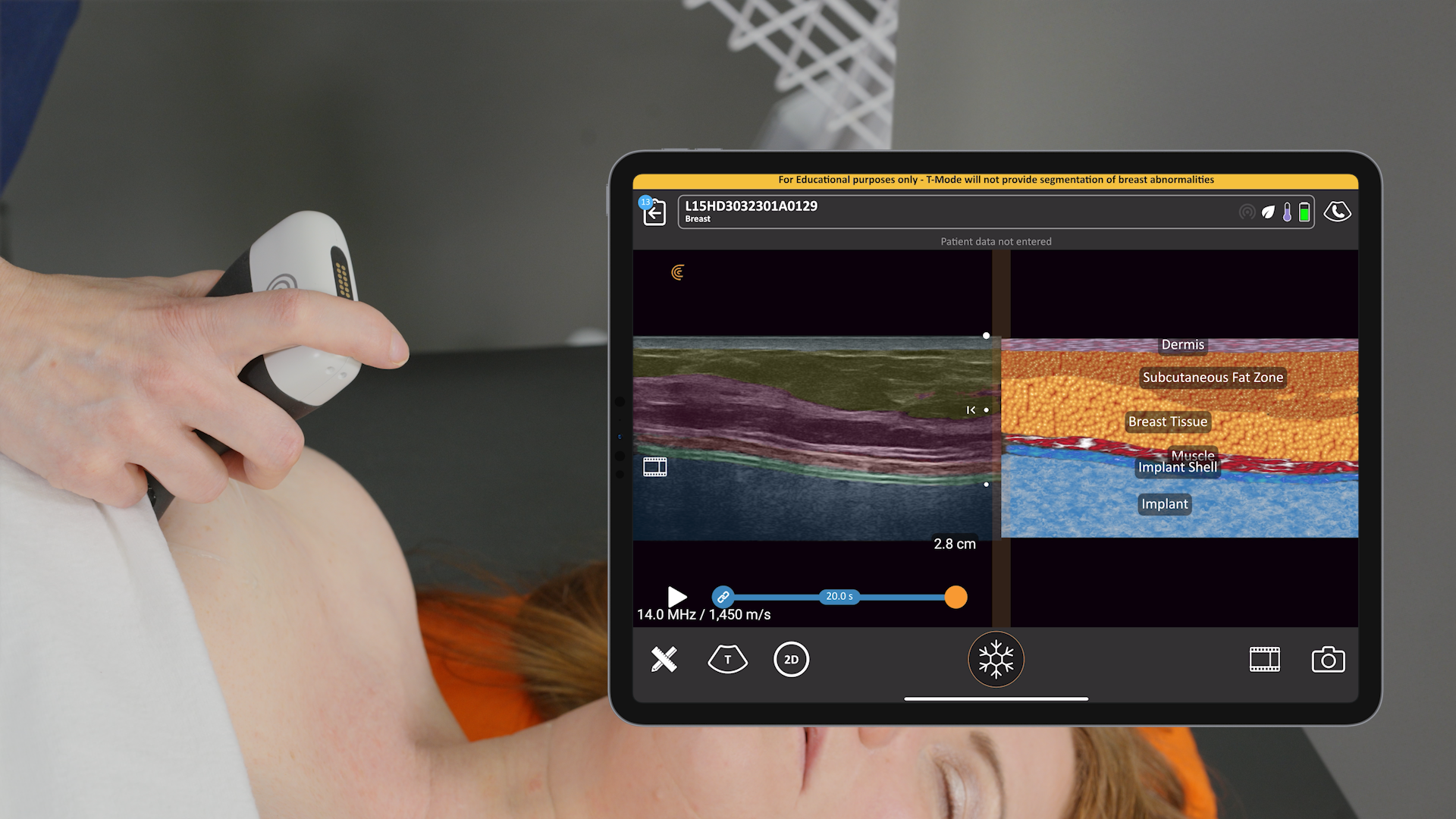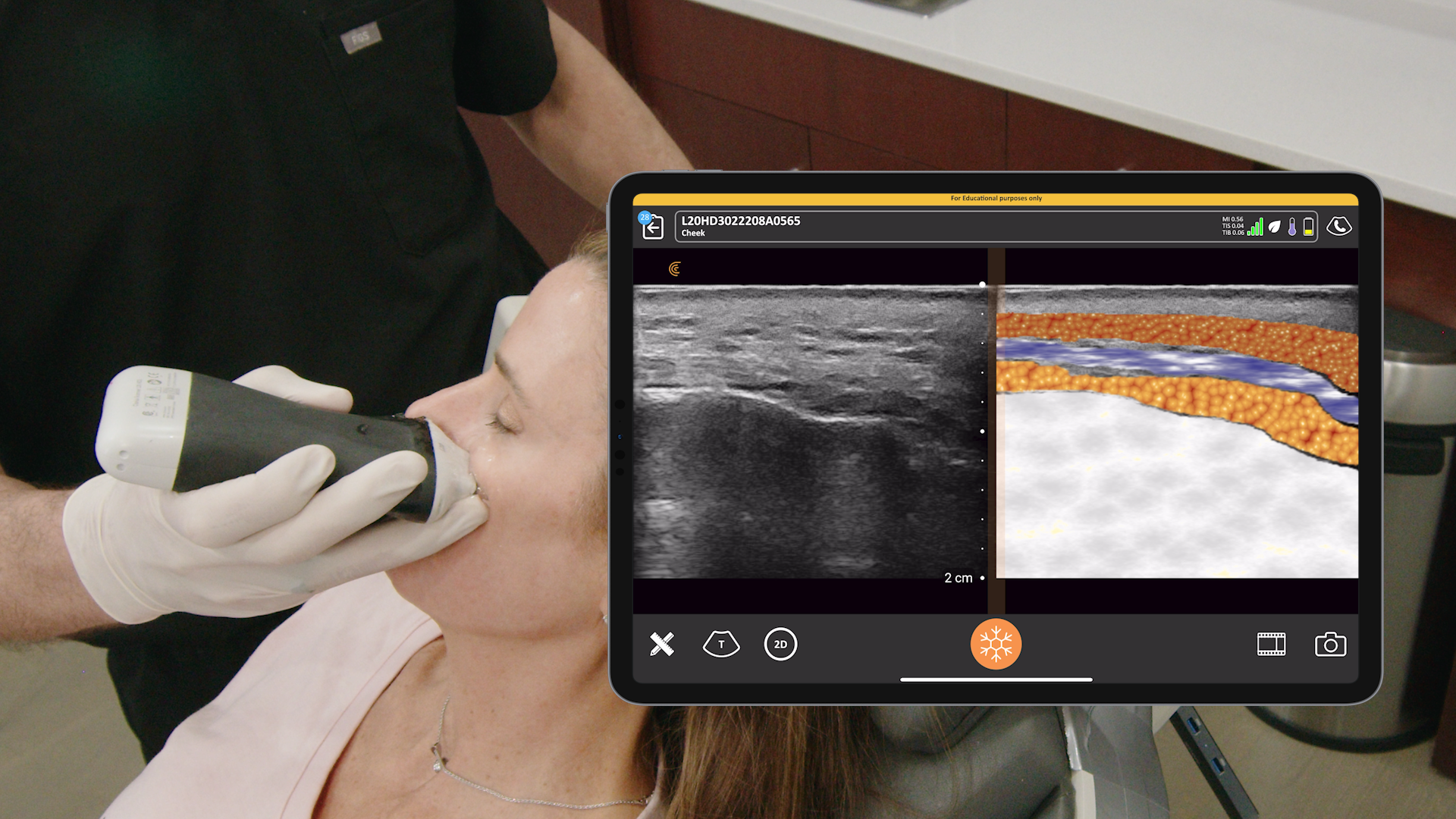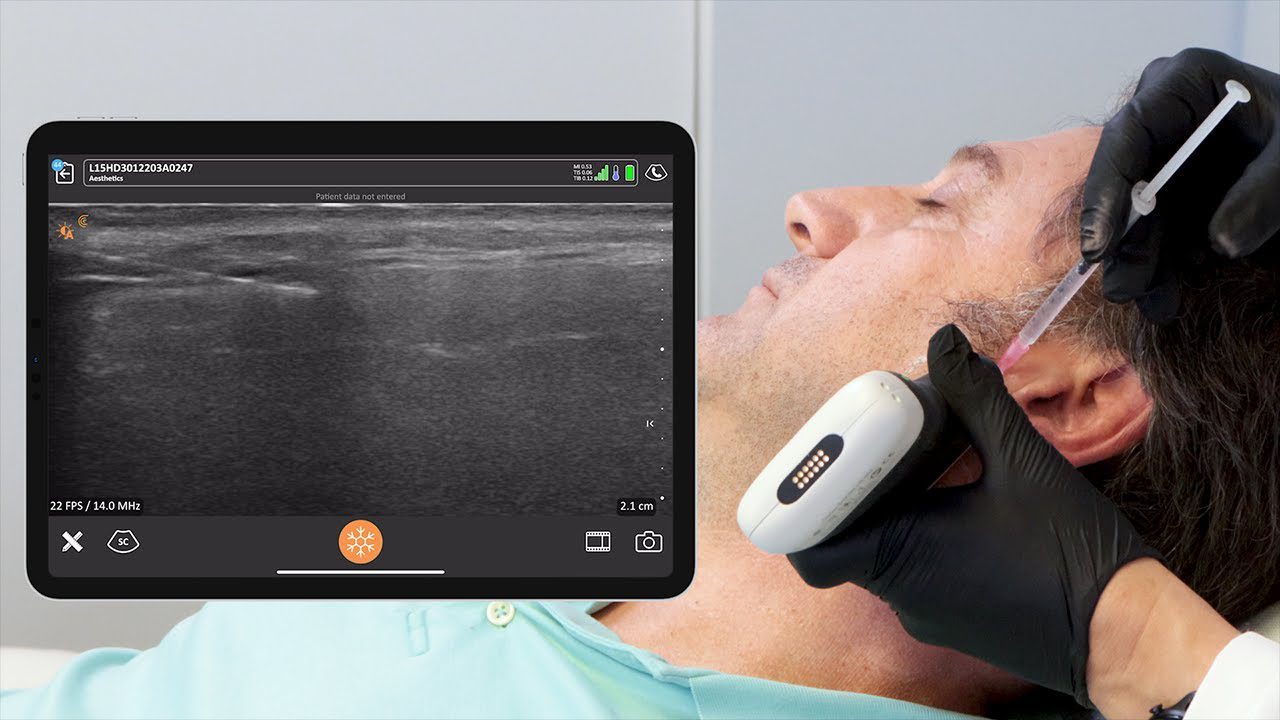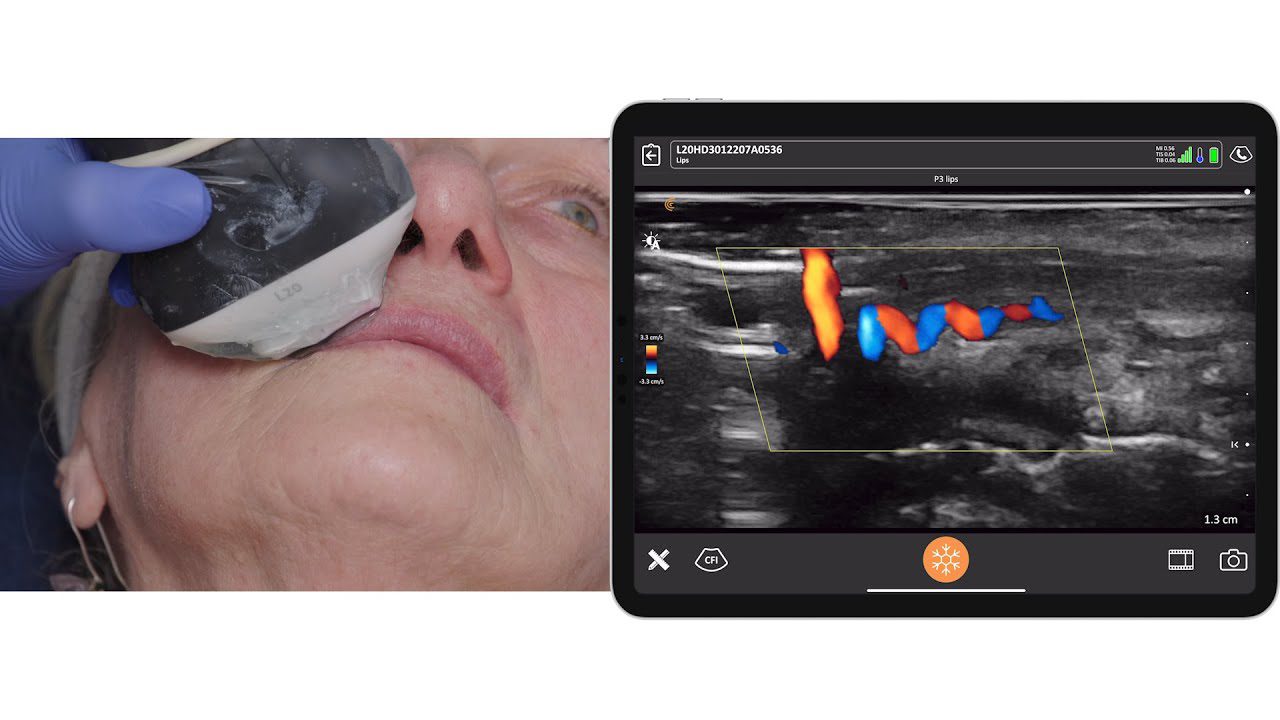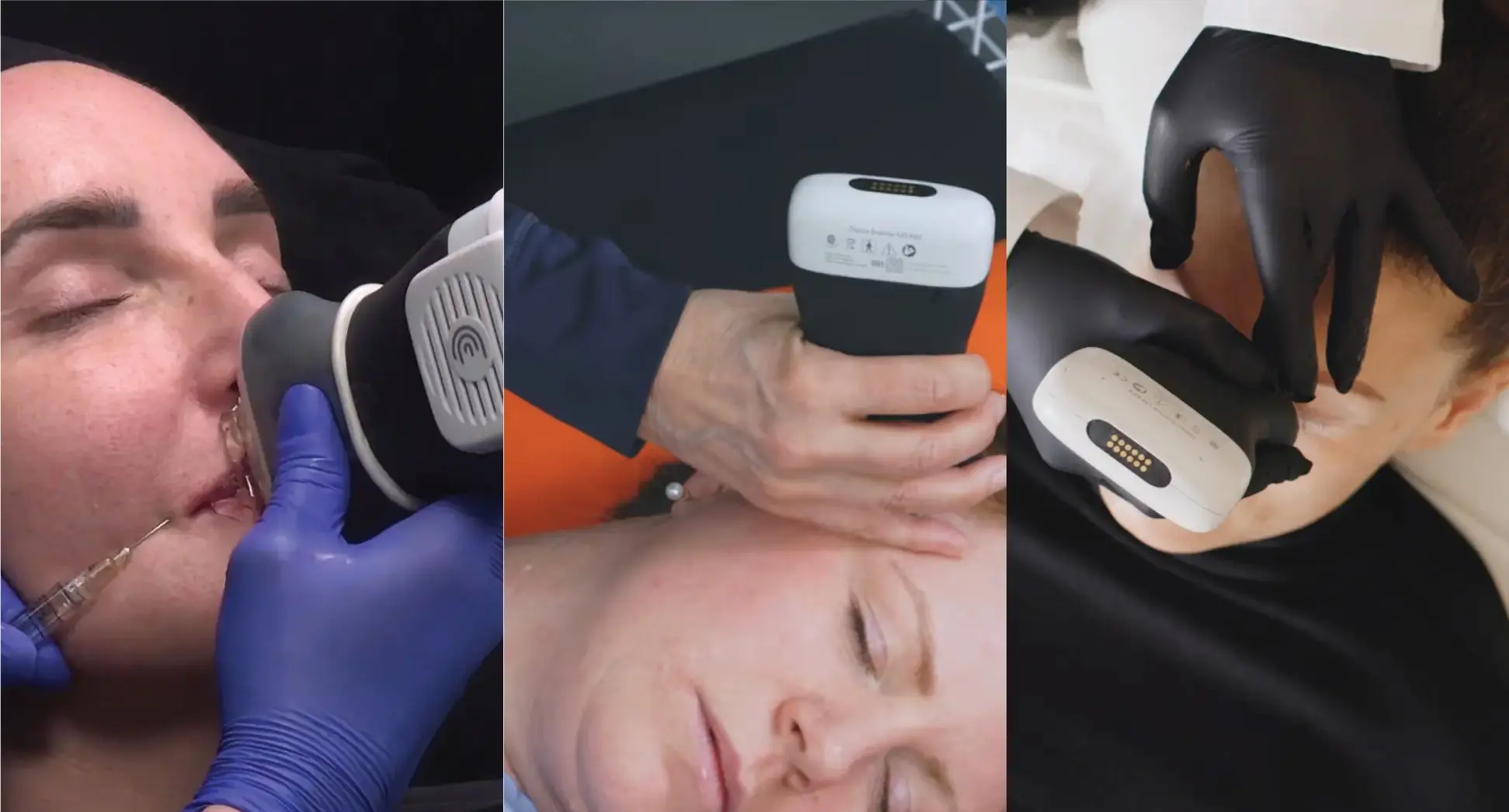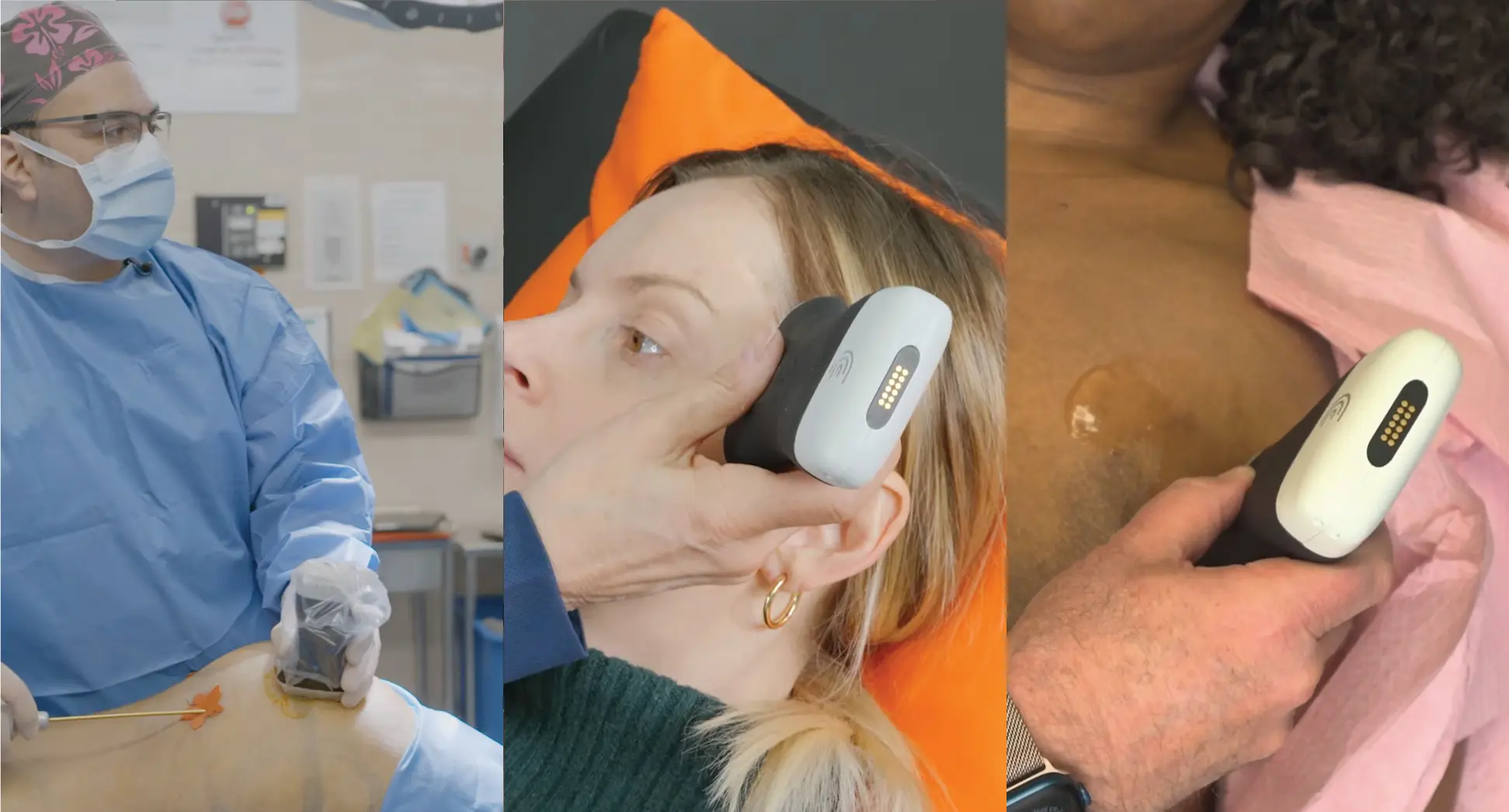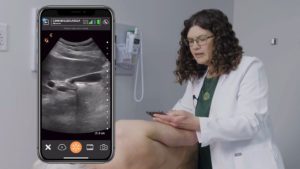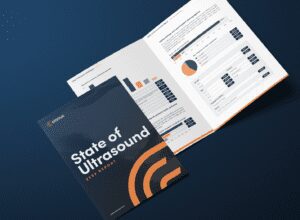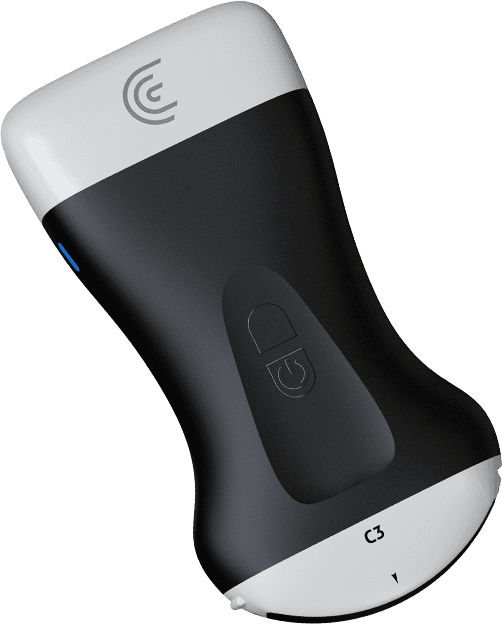In response to an alarming number of deaths from gluteal fat grating, a multi-society task force for safety in gluteal fat grafting in the U.S. released a practice advisory that showed that there was an unusually high mortality rate. It’s estimated that as many as one in 3,000 patients die due to complications of Brazilian Butt Lift (BBL) procedures, which is greater than any other cosmetic surgery. The cause of death was fat embolism due to fat entering the venous circulation with injury to the gluteal veins.
According to plastic surgeon Dr. Pat Pazmiño, MD, FACS, in 2021, eight women in South Florida died from a fat embolism after gluteal fat grafting procedures that were performed without ultrasound guidance. That’s why he’s on a mission to teach scanning best practices for guiding safe BBL surgeries. Dr. Pazmiño has more than nine years of experience using ultrasound to improve patient safety and procedural outcomes at his own practice.
We recently had the privilege of presenting a webinar with Pazmiño during which he shares proven ultrasound-guided techniques for making BBLs more accurate, reproducible, and safer. Watch the webinar at your convenience or read on for highlights
Emergency Rule Mandating Ultrasound Guidance
In June of this year, the Florida Board of Medicine issued an emergency rule with the Department of State enacting measures to protect patients who elect to have the BBL procedure. “The surgeon performing the BBL must use ultrasound guidance when placing and navigating the cannula and injecting fat into the subcutaneous space to ensure the fat is placed above the fascia overlying the gluteal muscle.” The procedure must be recorded and saved to the patient’s medical record.
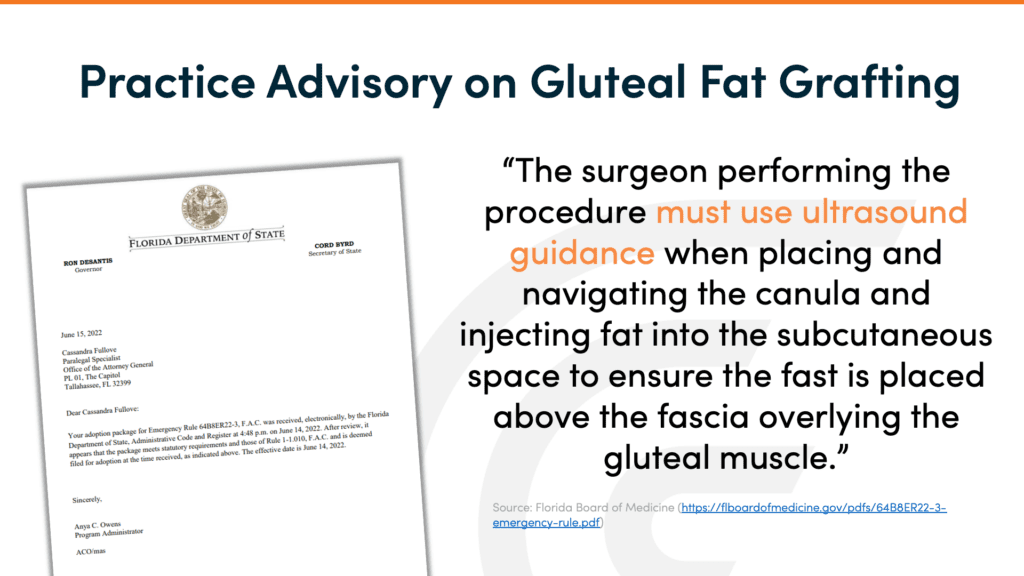
BBL’s Performed Blindly are Killing Patients and Hurting Surgeons
Dr. Pazmiño asks “When you perform a blind Brazilian butt lift today, would you bet your medical license that you are always injecting fat in the subcutaneous space?”
The addition of handheld, wireless ultrasound to visualize the gluteal anatomy as well as the instrument the surgeon is using, to make gluteal fat grafting safer, faster, and more accurate.
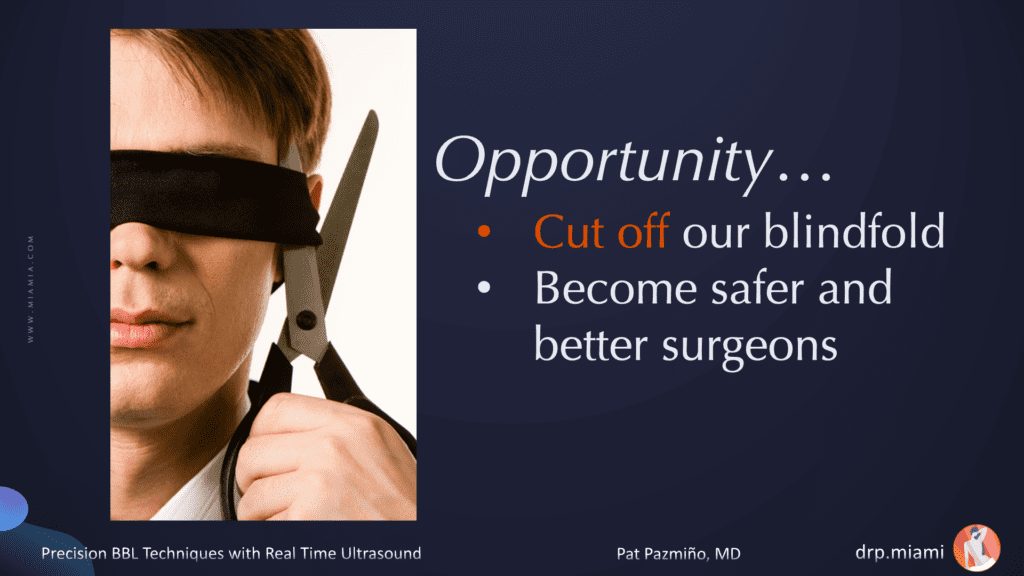
Looking Under the Skin
There are two gluteal fasciae, the superficial (SGF) and the deep (DGF), and these are easily visible with high-resolution ultrasound.
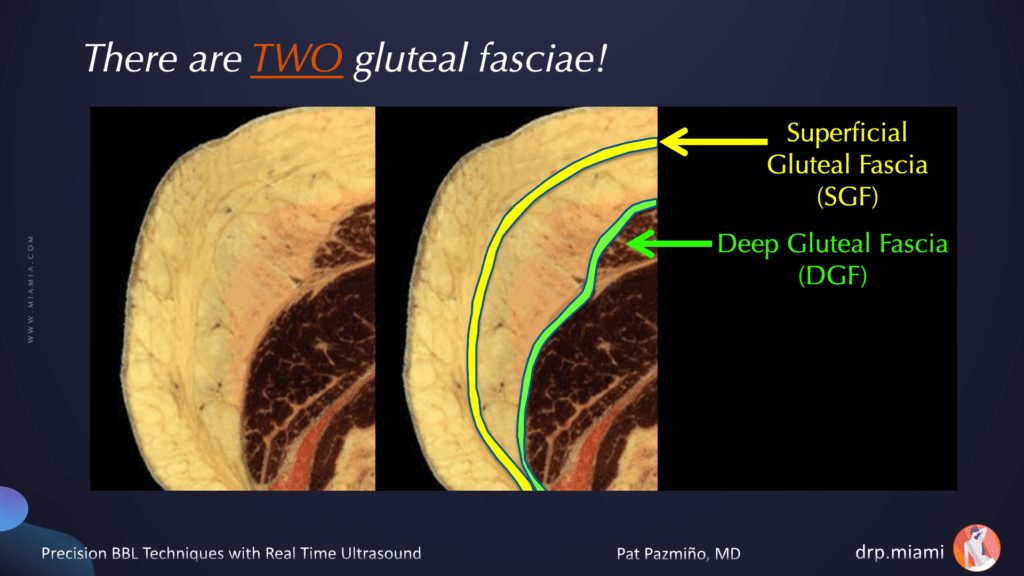
The deep gluteal fascia is adherent to the external surface of the gluteus maximus, and it is this fascia that should never be crossed with the cannula. Fat Injections should never be done into the gluteal muscle.
The superficial gluteal fascia divides the subcutaneous region into two spaces, the superficial subcutaneous space and the deep subcutaneous space. The superficial space is very fibrous, so injecting into this layer tends to result in a flattened appearance.
When fat is placed under the superficial fascia (and above the deep gluteal fascia) it can easily migrate within the space and the cosmetic result is much improved. Ultrasound allows precise, targeted fat grafting into this tissue plane.
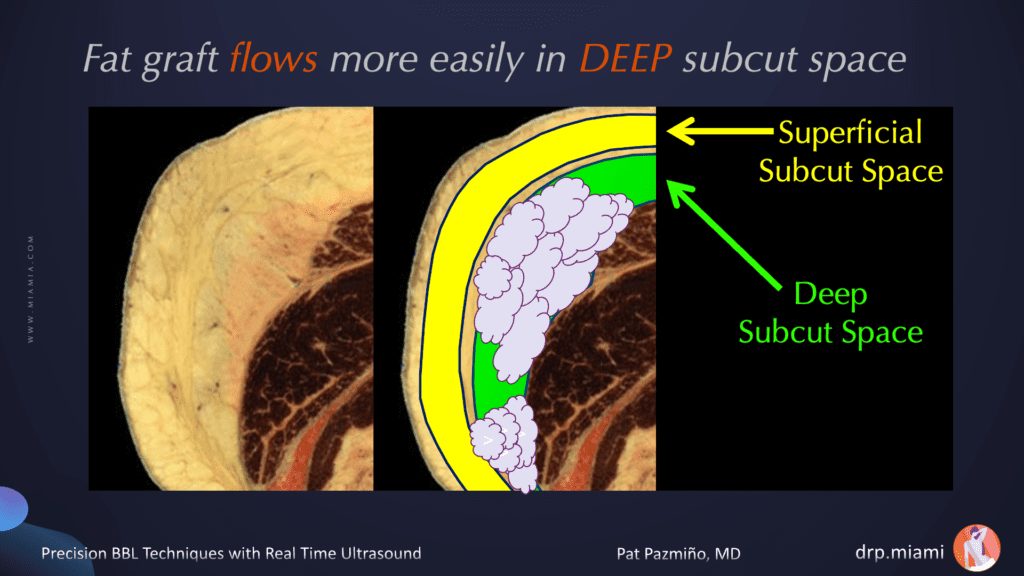
Watch this Clarius Classroom video to see Dr. Pazmiño’s UltraBBL technique using the Clarius L7 Scanner. “I really like a portable and a wireless probe because it allows me complete freedom in the operating room.”
Dr. Pazmiño’s Five Tips for Using Ultrasound in Plastic Surgery
- Prior to BBL procedures, ultrasound can be used to measure the diameter of the subcutaneous space volume estimates
- Evaluate post-operative seroma and edema, and aspirate when indicated.
- Perform intra-operative TAP block under ultrasound guidance for abdominoplasty surgeries
- Prior to breast surgeries, safe and effective PEC I and II blocks can be done for pain control
- Practice makes perfect. For plastic surgeons, ultrasound anatomy straightforward and easy to interpret
“Ultrasound allows the surgeon to be able to fine tune the procedure. For the first time, we can now see where every single drop of fat graft is going to go. And this gives us unparalleled control in the way that we shape and the way that we sculpt our patients. I think it’s an exciting time for surgeons to give them a tool that will help prove that they performed the procedure safely and the same tool can make them an efficient and better sculptor.”
About Dr. Pazmiño
Dr. Pat Pazmiño, MD, FRCS, has been using ultrasound in his practice for 9 years, and literally wrote the book on using real-time intra-operative ultrasound for contouring procedures. He created the UltraBBL, using portable, wireless ultrasound in his operating room. He completed his MD from the Baylor College of Medicine in Houston, Texas, and then general and plastic surgery residency at Baylor as well. Dr. Pazmiño is the founder of Miami Aesthetic, and is nationally known for inventing new procedures, combining the latest techniques in aesthetic surgery with ultrasound for the benefit and safety of his patients.
Wireless and portable, Clarius delivers high-definition imaging with an easy-to-use app that’s powered by artificial intelligence. Our Advanced Aesthetics package, included with membership, offers customized workflows for accurate plastic surgery examinations and procedural guidance.
Visit our plastic surgery specialty page to learn which scanner is right for your practice, or contact us today to schedule a virtual demo
